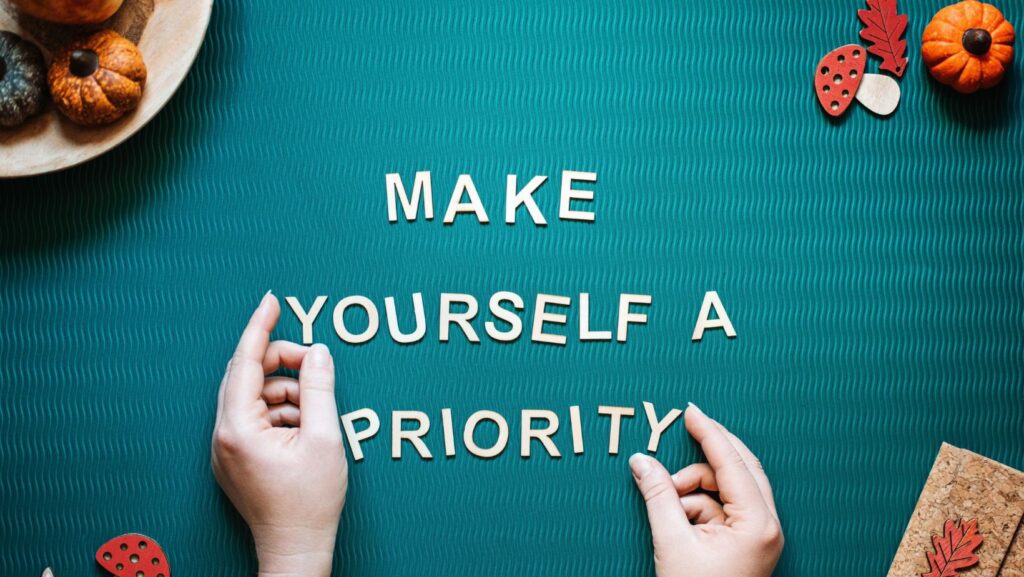Introduction:
In today’s fast-paced world, the concept of self-care often takes a backseat to the demands of daily life. Between professional responsibilities, social commitments, and family obligations, it is easy to neglect one’s own well-being. However, prioritizing self-care is not just a luxury; it is an essential aspect of living a balanced and fulfilling life.
Self-care encompasses a wide range of activities and practices that nurture physical, emotional, and mental health. It is about making deliberate choices to care for yourself, even in the face of a hectic schedule. This article delves into why self-care is indispensable and provides actionable steps to integrate it seamlessly into your routine.
Understanding What Self-Care Truly Means:
Alex Constantinou – MD at The Fitness Circle speaks “Self-care is more than pampering oneself; it is about sustaining long-term health and resilience. It involves recognizing when your body, mind, or emotions need attention and taking proactive steps to address those needs.”
True self-care includes practices like getting enough sleep, eating a balanced diet, exercising regularly, and setting boundaries. It also extends to emotional self-care, such as seeking therapy, cultivating supportive relationships, and engaging in hobbies that bring joy.
Misconceptions About Self-Care:
Pareen Sehat MC, RCC – Clinical Director at Well Beings Counselling, shares “Many people believe self-care is indulgent or selfish. This misconception prevents them from prioritizing their own well-being. However, self-care equips individuals with the energy and focus to be present for others.”
Another misconception is that self-care requires significant time or money. In reality, even small acts like taking a few minutes to meditate or enjoying a cup of tea can make a significant impact.
The Physical Benefits of Prioritizing Self-Care:
John Beebe, Founder, Classic Car Deals shares “Caring for your physical health is foundational to overall well-being. When the body is healthy, it supports a sharper mind and a more balanced emotional state.”
How Regular Exercise Enhances Well-Being:
Physical activity boosts endorphins, improves cardiovascular health, and increases energy levels.

Whether it’s a daily walk, yoga session, or a gym workout, consistent movement is key to maintaining vitality.
- Benefits of exercise:
- Reduces stress levels
- Improves sleep quality
- Enhances immune function
The Role of Nutrition in Self-Care:
William Green, Founder of Botonics shares “A balanced diet fuels the body and brain, making it easier to cope with stress and maintain focus. Prioritizing whole foods, hydration, and moderation in eating habits contributes significantly to well-being.”
Skipping meals or consuming too much-processed food can lead to fatigue, irritability, and long-term health issues. Therefore, making mindful food choices is an act of self-love.
According to this experienced dentist in Keene TX, regular health checkups also play a crucial role in overall well-being. Routine screenings help detect potential health issues early, ensuring timely intervention and prevention of more serious conditions. Prioritizing both nutrition and regular medical checkups fosters a proactive approach to long-term health.
Emotional Resilience Through Self-Care:
Emotional well-being is a critical component of self-care. When emotions are balanced, individuals are better equipped to handle life’s challenges and enjoy meaningful connections.
The Importance of Setting Boundaries:
Boundaries help protect your energy and prevent burnout. They ensure that you allocate time for yourself without feeling guilty or overextended.
- Ways to set boundaries:
- Learn to say no politely but firmly
- Communicate needs clearly
- Recognize and address feelings of guilt
Cultivating Supportive Relationships:
Healthy relationships provide emotional nourishment. Spending time with people who uplift and encourage you fosters resilience and happiness.
Toxic relationships, on the other hand, drain energy and create unnecessary stress. It is essential to evaluate the dynamics of your relationships and make changes when needed.
Mental Clarity Through Self-Care Practices:
Mental health often suffers in a busy world, making it crucial to prioritize practices that promote mental clarity and peace, such as incorporating customized nootropics alongside other self-care techniques. A well-rested and focused mind can achieve far more than one bogged down by fatigue or stress.
The Power of Mindfulness and Meditation:
Mindfulness involves being present in the moment without judgment. Meditation is a powerful tool that calms the mind and reduces stress.

Even five minutes a day can have profound benefits.
- Benefits of mindfulness and meditation:
- Reduces anxiety
- Enhances focus and creativity
- Promotes a sense of calm
The Role of Hobbies in Mental Well-Being:
Engaging in hobbies provides a mental break from daily stressors. Whether it’s painting, gardening, or playing an instrument, hobbies stimulate creativity and bring joy.
Hobbies also offer an opportunity to practice mindfulness by immersing yourself fully in an enjoyable activity.
Strategies for Incorporating Self-Care Into a Busy Lifestyle:
Dahlia Rice, M.D, Owner & Plastic Surgeon of DMR Aesthetics Chicago adds “Balancing self-care with a demanding schedule requires intentionality and planning. Simple strategies can help ensure that self-care becomes a non-negotiable part of your routine.”
Time Management and Prioritization:
Learning to manage your time effectively can create space for self-care. Prioritize tasks based on importance and urgency, and delegate whenever possible.
- Tips for better time management:
- Use a planner or digital calendar
- Break tasks into smaller steps
- Schedule self-care as you would a meeting
Integrating Self-Care Into Daily Activities:
Self-care does not always require extra time. It can be woven into daily routines. For example, listening to an audiobook during your commute or practicing deep breathing while waiting in line are simple ways to incorporate self-care.
By identifying small pockets of time, you can consistently nurture your well-being without feeling overwhelmed.
The Connection Between Relaxation and Holistic Well-Being:
Vladimira Ivanova, Psychologist at The Diamond Rehab Thailand says Relaxation is a cornerstone of self-care, promoting harmony between the mind and body. It is more than just rest; it is a way to reset and recharge.
The Science Behind Relaxation Practices:
Relaxation techniques such as deep breathing, progressive muscle relaxation, and guided imagery help reduce stress and improve overall health. These practices lower cortisol levels and enhance focus.
- Benefits of relaxation techniques:
- Reduces physical tension
- Improves emotional balance
- Boosts cognitive performance
Creating a Relaxing Environment at Home:
A calm and serene environment fosters relaxation. Simple changes like using soothing colors, incorporating natural elements, or adding aromatherapy can transform your space into a haven for rest.
Setting aside a dedicated space for relaxation, free from distractions, can make a significant difference in managing stress and improving well-being.
The Role of Water Therapy in Restoring Balance:
Tiffany Payne, Head of Content at PharmacyOnline.co.uk adds “Water therapy has long been used to promote relaxation and rejuvenation. Immersing yourself in water can have both physical and mental health benefits, making it a valuable self-care practice.”
The Benefits of Hydrotherapy:
Hydrotherapy helps improve circulation, reduce muscle tension, and lower stress levels. Whether it’s a warm bath or a therapeutic soak, water therapy soothes the body and calms the mind.
- Advantages of incorporating water therapy:
- Relieves physical pain and stiffness
- Enhances relaxation and sleep
- Supports recovery after physical exertion
Creating a Water Therapy Routine:
“Incorporating water therapy into your self-care regimen can be simple and effective. From adding essential oils to your bath to practicing mindfulness while soaking, water therapy offers a serene escape from daily stress.
By making water therapy a regular practice, you can experience both immediate relaxation and long-term wellness benefits.” – Alyssa Badiou, Owner of Osmosis Lounge
Conclusion:
In a world that celebrates busyness, self-care often seems like an afterthought. Yet, it is a vital foundation for living a healthy and fulfilling life. By prioritizing practices that nourish the body, mind, and soul, you can build resilience, enhance relationships, and achieve greater clarity.
Self-care is not selfish; it is an act of self-preservation. It enables you to show up as your best self in every area of life. By making deliberate choices to prioritize your well-being, you invest in a healthier, happier future for yourself and those around you.
